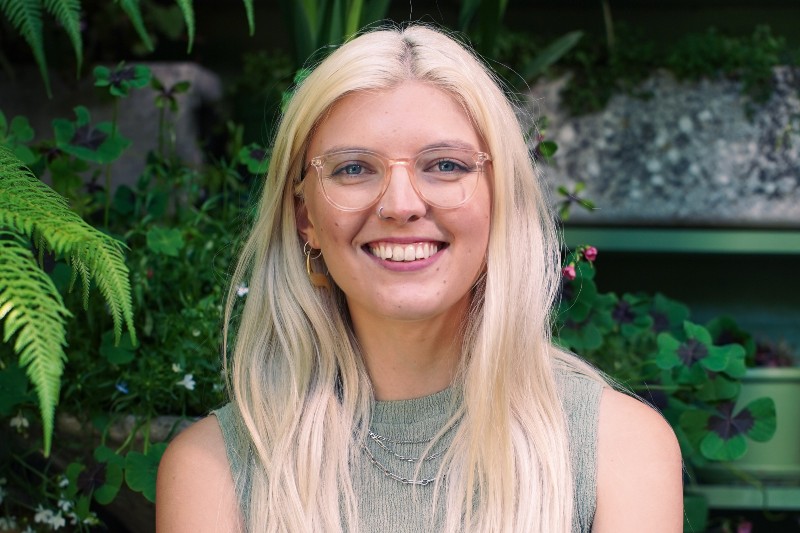
After graduating from Bristol with a first class honours degree in Philosophy and Politics, Elodie Read has advocated for her passions all over the globe. She has worked on gender equality and refugee rights programmes with NGOs in the UK, Spain, Indonesia and Kenya. Now, she is channeling her energy into tackling climate change by working as the Programme Lead for Subak – the world’s first accelerator for climate nonprofits.
Co-founded by fellow Bristol alumnus, Gi Fernando MBE (BEng 1992) and Baroness Bryony Worthington, Subak was launched this summer. It connects like-minded environmental non-profits, helping them to share data and collaborate in order to address the climate emergency. Elodie is responsible for running Subak’s Accelerator Programme and is the main point of contact for the organisations it supports. Here she recalls some of her favourite Bristol memories and gives her advice on starting a career in sustainability.
During your student days, where was your favourite place to spend time in Bristol and why?
So many places! I loved Stokes Croft, Montpelier and St Werburgh’s. The best thing about Bristol is that you can walk pretty much anywhere. I used to love walking up to the Gorge. I recently found out that there is a species of tree called the Bristol Whitebeam, which grows exclusively in the wild in the Avon Gorge and Leigh Woods.
How did studying at the University of Bristol impact you as a person?
Bristol is such an amazing city. It has a remarkable history, obviously with some very dark moments due to Bristol’s role in Britain’s Transatlantic Slave Trade. But it also has a more recent history of progressive politics and activism, underground art and music, and a strong and growing green movement. I think studying at Bristol and learning about that history made me interested in these moments and movements, both past and current, and how they’re all related.
Could you tell me more about the career journey you’ve been on since graduating?
After graduating I travelled around Europe in a van, working on small-scale organic farms and learning about permaculture and agroecology. I then went to Oxford to do an MPhil in Development Studies, where I researched conservation and indigenous rights in St Vincent & the Grenadines and Honduras. After my MPhil I started my professional career in nonprofits, working on a variety of issues from gender equality to refugee rights. I quickly realised that all of the social justice issues I care about are being exacerbated by climate change, so I decided to find a job where I could focus exclusively on climate. That’s when I found Subak!
What is your role at Subak and what’s the best thing about your job?
I’m Programme Lead at Subak. I run the Accelerator for our members, who are early-stage climate start-ups. What makes us unique is our exclusive focus on nonprofits, which means that our cohort are trying to maximise impact, rather than profit.
Our members are showing that starting a climate nonprofit can allow you to earn a decent living, work on fascinating climate issues, and make a genuine impact with your career. I also support our Fellows, who are individuals conducting one-off data projects. We’ve got some incredibly smart and talented Fellows in our network already, from PhD students to mid-career corporate professionals. The best thing about my job is that I get to work at the heart of this incredible network of smart and driven people who all share the same mission: to tackle climate change.
What advice would you give to current Bristol students who are hoping to embark on climate-focussed careers?
Climate change and sustainability are busy and growing sectors, and it’s sometimes difficult to sort the genuine changemakers from the greenwashers. I’d say it’s important to make sure that you work for an organisation that really aligns with your goals. We advertise jobs with Subak companies on our job board so it’s worth checking that out if you’re looking for a career in sustainability. Subak companies are unique as they act like tech start-ups but they’re non-profits. That means they are agile, fast-moving, and data driven. Some do generate revenue, but they all focus on climate impact rather than shareholder profit.
If you’re interested in becoming a Subak Fellow you can apply here or if you’d like to find out more about becoming a Subak Member click here.
